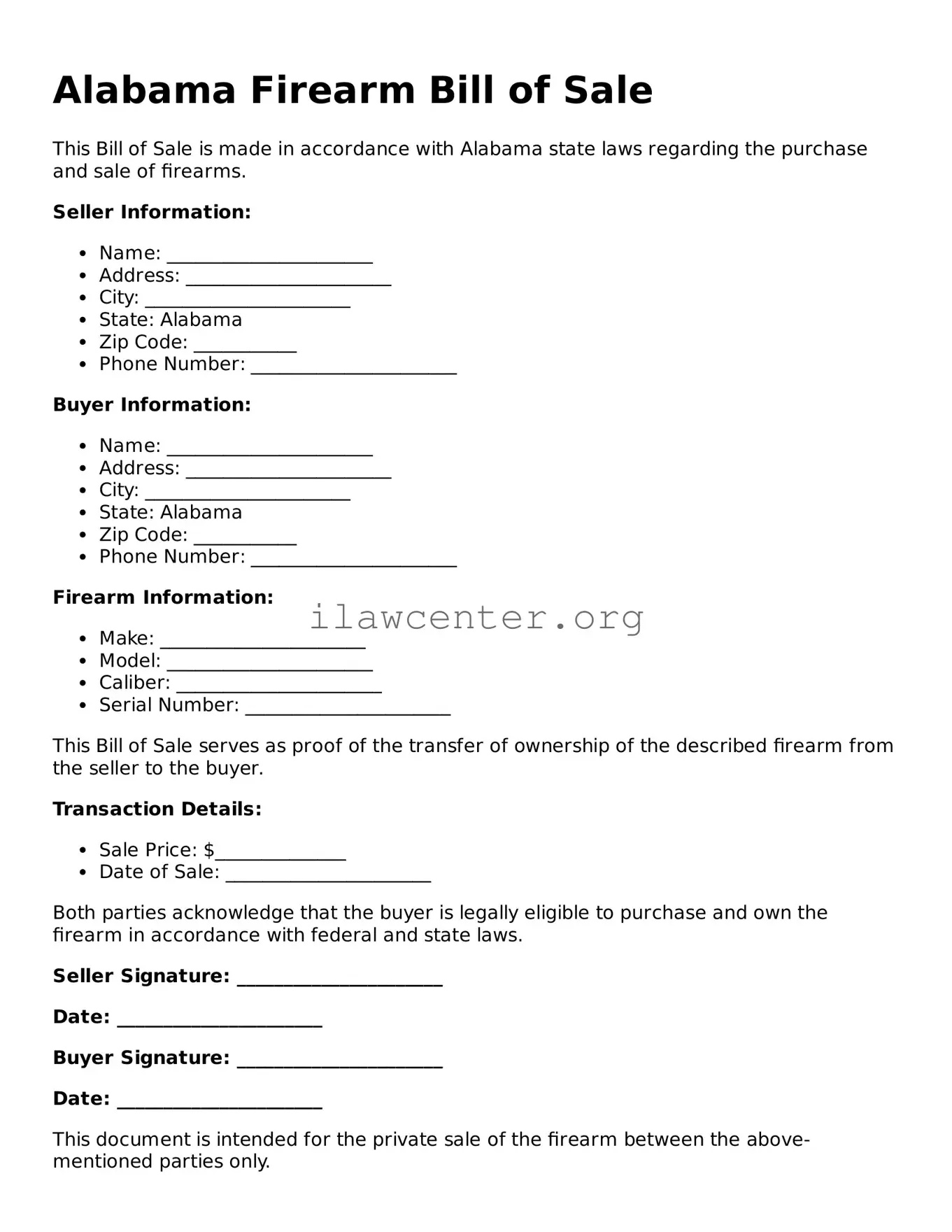What is an Alabama Firearm Bill of Sale?
The Alabama Firearm Bill of Sale is a document that serves as proof of transfer of ownership of a firearm between a seller and a buyer. This form is essential for both parties involved in the transaction and provides a written record of the details of the sale, including the description of the firearm, the sales price, and the date of the transaction. Having this document helps ensure that both the buyer and seller are protected legally in the event of any future disputes or questions regarding the ownership of the firearm.
Is a Bill of Sale required for private firearm sales in Alabama?
While Alabama does not require a Bill of Sale for private transactions of firearms, it is strongly recommended. Not only does it create a record of the sale, but it also provides a safeguard for the seller by showing that the firearm was legitimately transferred to another party. In the event that a transferred firearm is used in a crime, having a Bill of Sale can help demonstrate that the seller no longer owns the firearm, potentially relieving them of legal responsibility.
What information should be included in the Alabama Firearm Bill of Sale?
The Firearm Bill of Sale should include several critical pieces of information. First, the full names and addresses of both the buyer and the seller are necessary to identify them in the transaction. A detailed description of the firearm itself—such as make, model, caliber, and serial number—must also be included to ensure clear understanding of what is being sold. The date of the sale and the sale price should be specified as well. Finally, signatures of both parties are needed to validate the document.
Do I need to have the Bill of Sale notarized?
In Alabama, it is not a legal requirement to have the Bill of Sale notarized in order for it to be valid. However, having it notarized can provide an extra layer of assurance for both parties. Notarization verifies the identities of the individuals involved and confirms that they willingly entered into the transaction, which can be beneficial if any disputes arise later.
Can I complete a Firearm Bill of Sale online?
Yes, there are many platforms and resources available online that allow individuals to complete a Firearm Bill of Sale. These online services often provide templates and guides that make the process straightforward. However, it is important to ensure that any form used complies with Alabama laws and includes all necessary information. After filling out the form, both parties should print it out, sign it, and keep a copy for their records.
What if I lose the Bill of Sale?
If the Bill of Sale is lost, it can create complications, especially if questions arise concerning the ownership of the firearm. It is advisable to keep a copy in a secure location. If a copy is lost, it may be possible to recreate it by obtaining the necessary information from the other party involved in the transaction. In cases where the original seller is unavailable, it may be helpful to keep any additional paperwork that supports the firearm's purchase, such as receipts or previous ownership documentation.
